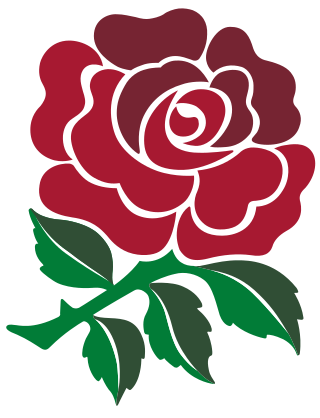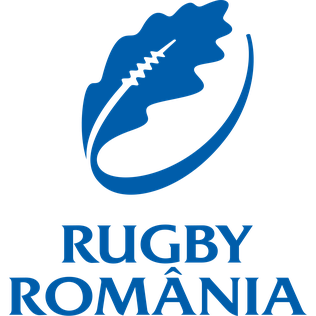| No. | Date | Venue | Score | Winner | Competition |
|---|
| 1 | 2 March 1908 | National Stadium, Cardiff | 36–4 |  Wales Wales | 1908 Home Nations Championship |
|---|
| 2 | 23 February 1909 | Stade Yves-du-Manoir, Colombes | 5–47 |  Wales Wales | 1909 Home Nations Championship |
|---|
| 3 | 1 January 1910 | St Helen's, Swansea | 49–14 |  Wales Wales | 1910 Five Nations Championship |
|---|
| 4 | 28 February 1911 | Parc des Princes, Paris | 0–15 |  Wales Wales | 1911 Five Nations Championship |
|---|
| 5 | 25 March 1912 | Rodney Parade, Newport | 14–8 |  Wales Wales | 1912 Five Nations Championship |
|---|
| 6 | 27 February 1913 | Parc des Princes, Paris | 8–11 |  Wales Wales | 1913 Five Nations Championship |
|---|
| 7 | 2 March 1914 | St Helen's, Swansea | 31–0 |  Wales Wales | 1914 Five Nations Championship |
|---|
| 8 | 17 February 1920 | Stade Yves-du-Manoir, Colombes | 5–6 |  Wales Wales | 1920 Five Nations Championship |
|---|
| 9 | 26 February 1921 | National Stadium, Cardiff | 12–4 |  Wales Wales | 1921 Five Nations Championship |
|---|
| 10 | 23 March 1922 | Stade Yves-du-Manoir, Colombes | 3–11 |  Wales Wales | 1922 Five Nations Championship |
|---|
| 11 | 24 February 1923 | St Helen's, Swansea | 16–8 |  Wales Wales | 1923 Five Nations Championship |
|---|
| 12 | 27 March 1924 | Stade Yves-du-Manoir, Colombes | 6–10 |  Wales Wales | 1924 Five Nations Championship |
|---|
| 13 | 28 February 1925 | National Stadium, Cardiff | 11–5 |  Wales Wales | 1925 Five Nations Championship |
|---|
| 14 | 5 April 1926 | Stade Yves-du-Manoir, Colombes | 5–7 |  Wales Wales | 1926 Five Nations Championship |
|---|
| 15 | 26 February 1927 | St Helen's, Swansea | 25–7 |  Wales Wales | 1927 Five Nations Championship |
|---|
| 16 | 9 April 1928 | Stade Yves-du-Manoir, Colombes | 8–3 |  France France | 1928 Five Nations Championship |
|---|
| 17 | 23 February 1929 | National Stadium, Cardiff | 8–3 |  Wales Wales | 1929 Five Nations Championship |
|---|
| 18 | 21 April 1930 | Stade Yves-du-Manoir, Colombes | 0–11 |  Wales Wales | 1930 Five Nations Championship |
|---|
| 19 | 28 February 1931 | St Helen's, Swansea | 35–3 |  Wales Wales | 1931 Five Nations Championship |
|---|
| 20 | 22 March 1947 | Stade Yves-du-Manoir, Colombes | 0–3 |  Wales Wales | 1947 Five Nations Championship |
|---|
| 21 | 21 February 1948 | St Helen's, Swansea | 3–11 |  France France | 1948 Five Nations Championship |
|---|
| 22 | 26 March 1949 | Stade Yves-du-Manoir, Colombes | 5–3 |  France France | 1949 Five Nations Championship |
|---|
| 23 | 25 March 1950 | National Stadium, Cardiff | 21–0 |  Wales Wales | 1950 Five Nations Championship |
|---|
| 24 | 7 April 1951 | Stade Yves-du-Manoir, Colombes | 8–3 |  France France | 1951 Five Nations Championship |
|---|
| 25 | 22 March 1952 | St Helen's, Swansea | 9–5 |  Wales Wales | 1952 Five Nations Championship |
|---|
| 26 | 28 March 1953 | Stade Yves-du-Manoir, Colombes | 3–6 |  Wales Wales | 1953 Five Nations Championship |
|---|
| 27 | 27 March 1954 | National Stadium, Cardiff | 19–13 |  Wales Wales | 1954 Five Nations Championship |
|---|
| 28 | 26 March 1955 | Stade Yves-du-Manoir, Colombes | 11–16 |  Wales Wales | 1955 Five Nations Championship |
|---|
| 29 | 24 March 1956 | National Stadium, Cardiff | 5–3 |  Wales Wales | 1956 Five Nations Championship |
|---|
| 30 | 23 March 1957 | Stade Yves-du-Manoir, Colombes | 13–19 |  Wales Wales | 1957 Five Nations Championship |
|---|
| 31 | 29 March 1958 | National Stadium, Cardiff | 6–16 |  France France | 1958 Five Nations Championship |
|---|
| 32 | 4 April 1959 | Stade Yves-du-Manoir, Colombes | 11–3 |  France France | 1959 Five Nations Championship |
|---|
| 33 | 26 March 1960 | National Stadium, Cardiff | 8–16 |  France France | 1960 Five Nations Championship |
|---|
| 34 | 25 March 1961 | Stade Yves-du-Manoir, Colombes | 8–6 |  France France | 1961 Five Nations Championship |
|---|
| 35 | 24 March 1962 | National Stadium, Cardiff | 3–0 |  Wales Wales | 1962 Five Nations Championship |
|---|
| 36 | 23 March 1963 | Stade Yves-du-Manoir, Colombes | 5–3 |  France France | 1963 Five Nations Championship |
|---|
| 37 | 21 March 1964 | National Stadium, Cardiff | 11–11 | draw | 1964 Five Nations Championship |
|---|
| 38 | 27 March 1965 | Stade Yves-du-Manoir, Colombes | 22–13 |  France France | 1965 Five Nations Championship |
|---|
| 39 | 26 March 1966 | National Stadium, Cardiff | 9–8 |  Wales Wales | 1966 Five Nations Championship |
|---|
| 40 | 1 April 1967 | Stade Yves-du-Manoir, Colombes | 20–14 |  France France | 1967 Five Nations Championship |
|---|
| 41 | 23 March 1968 | National Stadium, Cardiff | 9–14 |  France France | 1968 Five Nations Championship |
|---|
| 42 | 22 March 1969 | Stade Yves-du-Manoir, Colombes | 8–8 | draw | 1969 Five Nations Championship |
|---|
| 43 | 4 April 1970 | National Stadium, Cardiff | 11–6 |  Wales Wales | 1970 Five Nations Championship |
|---|
| 44 | 27 March 1971 | Stade Yves-du-Manoir, Colombes | 5–9 |  Wales Wales | 1971 Five Nations Championship |
|---|
| 45 | 25 March 1972 | National Stadium, Cardiff | 20–6 |  Wales Wales | 1972 Five Nations Championship |
|---|
| 46 | 24 March 1973 | Parc des Princes, Paris | 12–3 |  France France | 1973 Five Nations Championship |
|---|
| 47 | 16 February 1974 | National Stadium, Cardiff | 16–16 | draw | 1974 Five Nations Championship |
|---|
| 48 | 18 January 1975 | Parc des Princes, Paris | 10–25 |  Wales Wales | 1975 Five Nations Championship |
|---|
| 49 | 6 March 1976 | National Stadium, Cardiff | 19–13 |  Wales Wales | 1976 Five Nations Championship |
|---|
| 50 | 5 February 1977 | Parc des Princes, Paris | 16–9 |  France France | 1977 Five Nations Championship |
|---|
| 51 | 18 March 1978 | National Stadium, Cardiff | 16–7 |  Wales Wales | 1978 Five Nations Championship |
|---|
| 52 | 17 February 1979 | Parc des Princes, Paris | 14–13 |  France France | 1979 Five Nations Championship |
|---|
| 53 | 19 January 1980 | National Stadium, Cardiff | 18–9 |  Wales Wales | 1980 Five Nations Championship |
|---|
| 54 | 7 March 1981 | Parc des Princes, Paris | 19–15 |  France France | 1981 Five Nations Championship |
|---|
| 55 | 6 February 1982 | National Stadium, Cardiff | 22–12 |  Wales Wales | 1982 Five Nations Championship |
|---|
| 56 | 19 March 1983 | Parc des Princes, Paris | 16–9 |  France France | 1983 Five Nations Championship |
|---|
| 57 | 18 February 1984 | National Stadium, Cardiff | 16–21 |  France France | 1984 Five Nations Championship |
|---|
| 58 | 30 March 1985 | Parc des Princes, Paris | 14–3 |  France France | 1985 Five Nations Championship |
|---|
| 59 | 1 March 1986 | National Stadium, Cardiff | 15–23 |  France France | 1986 Five Nations Championship |
|---|
| 60 | 7 February 1987 | Parc des Princes, Paris | 16–9 |  France France | 1987 Five Nations Championship |
|---|
| 61 | 19 March 1988 | National Stadium, Cardiff | 9–10 |  France France | 1988 Five Nations Championship |
|---|
| 62 | 18 February 1989 | Parc des Princes, Paris | 31–12 |  France France | 1989 Five Nations Championship |
|---|
| 63 | 20 January 1990 | National Stadium, Cardiff | 19–29 |  France France | 1990 Five Nations Championship |
|---|
| 64 | 2 March 1991 | Parc des Princes, Paris | 36–3 |  France France | 1991 Five Nations Championship |
|---|
| 65 | 4 September 1991 | National Stadium, Cardiff | 9–22 |  France France | 1991 Rugby World Cup warm-up match |
|---|
| 66 | 1 February 1992 | National Stadium, Cardiff | 9–12 |  France France | 1992 Five Nations Championship |
|---|
| 67 | 20 March 1993 | Parc des Princes, Paris | 26–10 |  France France | 1993 Five Nations Championship |
|---|
| 68 | 19 February 1994 | National Stadium, Cardiff | 24–15 |  Wales Wales | 1994 Five Nations Championship |
|---|
| 69 | 21 January 1995 | Parc des Princes, Paris | 21–9 |  France France | 1995 Five Nations Championship |
|---|
| 70 | 16 March 1996 | National Stadium, Cardiff | 16–15 |  Wales Wales | 1996 Five Nations Championship |
|---|
| 71 | 25 September 1996 | National Stadium, Cardiff | 33–40 |  France France | 1996 France tour of Wales |
|---|
| 72 | 15 February 1997 | Parc des Princes, Paris | 27–22 |  France France | 1997 Five Nations Championship |
|---|
| 73 | 5 April 1998 | Wembley Stadium, London (England) | 0–51 |  France France | 1998 Five Nations Championship |
|---|
| 74 | 6 March 1999 | Stade de France, Saint-Denis | 33–34 |  Wales Wales | 1999 Five Nations Championship |
|---|
| 75 | 28 August 1999 | Millennium Stadium, Cardiff | 34–23 |  Wales Wales | 1999 Rugby World Cup warm-up match |
|---|
| 76 | 5 February 2000 | Millennium Stadium, Cardiff | 3–36 |  France France | 2000 Six Nations Championship |
|---|
| 77 | 17 March 2001 | Stade de France, Saint-Denis | 35–43 |  Wales Wales | 2001 Six Nations Championship |
|---|
| 78 | 16 February 2002 | Millennium Stadium, Cardiff | 33–37 |  France France | 2002 Six Nations Championship |
|---|
| 79 | 29 March 2003 | Stade de France, Saint-Denis | 33–5 |  France France | 2003 Six Nations Championship |
|---|
| 80 | 7 March 2004 | Millennium Stadium, Cardiff | 22–29 |  France France | 2004 Six Nations Championship |
|---|
| 81 | 26 February 2005 | Stade de France, Saint-Denis | 18–24 |  Wales Wales | 2005 Six Nations Championship |
|---|
| 82 | 18 March 2006 | Millennium Stadium, Cardiff | 16–21 |  France France | 2006 Six Nations Championship |
|---|
| 83 | 24 February 2007 | Stade de France, Saint-Denis | 32–21 |  France France | 2007 Six Nations Championship |
|---|
| 84 | 26 August 2007 | Millennium Stadium, Cardiff | 7–34 |  France France | 2007 Rugby World Cup warm-up match |
|---|
| 85 | 15 March 2008 | Millennium Stadium, Cardiff | 29–12 |  Wales Wales | 2008 Six Nations Championship |
|---|
| 86 | 27 February 2009 | Stade de France, Saint-Denis | 21–16 |  France France | 2009 Six Nations Championship |
|---|
| 87 | 26 February 2010 | Millennium Stadium, Cardiff | 20–26 |  France France | 2010 Six Nations Championship |
|---|
| 88 | 19 March 2011 | Stade de France, Saint-Denis | 28–9 |  France France | 2011 Six Nations Championship |
|---|
| 89 | 15 October 2011 | Eden Park, Auckland (New Zealand) | 8–9 |  France France | 2011 Rugby World Cup |
|---|
| 90 | 17 March 2012 | Millennium Stadium, Cardiff | 16–9 |  Wales Wales | 2012 Six Nations Championship |
|---|
| 91 | 9 February 2013 | Stade de France, Saint-Denis | 6–16 |  Wales Wales | 2013 Six Nations Championship |
|---|
| 92 | 21 February 2014 | Millennium Stadium, Cardiff | 27–6 |  Wales Wales | 2014 Six Nations Championship |
|---|
| 93 | 28 February 2015 | Stade de France, Saint-Denis | 13–20 |  Wales Wales | 2015 Six Nations Championship |
|---|
| 94 | 26 February 2016 | Millennium Stadium, Cardiff | 19–10 |  Wales Wales | 2016 Six Nations Championship |
|---|
| 95 | 18 March 2017 | Stade de France, Saint-Denis | 20–18 |  France France | 2017 Six Nations Championship |
|---|
| 96 | 17 March 2018 | Millennium Stadium, Cardiff | 14–13 |  Wales Wales | 2018 Six Nations Championship |
|---|
| 97 | 1 February 2019 | Stade de France, Saint-Denis | 19–24 |  Wales Wales | 2019 Six Nations Championship |
|---|
| 98 | 20 October 2019 | Ōita Stadium, Ōita (Japan) | 20–19 |  Wales Wales | 2019 Rugby World Cup |
|---|
| 99 | 22 February 2020 | Millennium Stadium, Cardiff | 23–27 |  France France | 2020 Six Nations Championship |
|---|
| 100 | 24 October 2020 | Stade de France, Saint-Denis | 38–21 |  France France | 2020 Autumn International |
|---|
| 101 | 20 March 2021 | Stade de France, Saint-Denis | 32–30 |  France France | 2021 Six Nations Championship |
|---|
| 102 | 11 March 2022 | Millennium Stadium, Cardiff | 9–13 |  France France | 2022 Six Nations Championship |
|---|
| 103 | 18 March 2023 | Stade de France, Saint-Denis | 41–28 |  France France | 2023 Six Nations Championship |
|---|
| 104 | 10 March 2024 | Millennium Stadium, Cardiff | 24–45 |  France France | 2024 Six Nations Championship |
|---|
| 105 | 31 January 2025 | Stade de France, Saint-Denis | 43–0 |  France France | 2025 Six Nations Championship |
|---|











